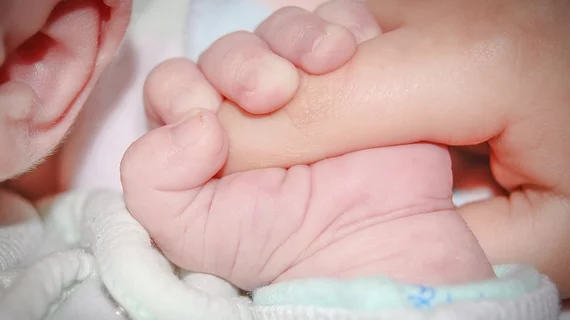MR spectroscopy predicts brain damage in newborns 2 years before symptoms
A 15-minute MR spectroscopy scan can diagnose brain damage in newborns with 98 percent accuracy up to two years earlier than current methods, according to an Imperial College London (ICL) press release. The research was published online Nov. 14 in The Lancet Neurology.
The researchers found the scan to outperform MRI scans, which can be between 60 to 85 percent accurate in detecting brain damage and rely heavily on a radiologist’s judgment.
“At the moment parents have an incredibly anxious two-year wait before they can be reliably informed if their child has any long-lasting brain damage,” Sughin Thayyil, MD, study author and director of the Center for Perinatal Neuroscience at ICL, said in a prepared statement. “[Our trial] suggests this additional test, which will require just 15 minutes extra in an MRI scan, could give parents an answer when their child is just a couple of weeks old. This will help them plan for the future and get the care and resources in place to support their child’s long-term development.”
Researchers led by Peter J. Lally, PhD, an MR physicist and clinical scientist at ICL, used MR spectroscopy to assess cells in the thalamus of more than 223 newborns (four to 14 days old). This area of the brain is responsible for functions such as movement, however it can be greatly damaged by oxygen deprivation, according to the researchers.
All newborns involved received therapeutic hypothermia after birth, a routine treatment for newborns with suspected brain damage that involves placing a baby on a mat to reduce their body temperature by four degrees. All 223 infants underwent an MR spectroscopy scan after a standard MRI exam to test for a compound called N-acetylaspartate—high levels of which are found in healthy brain cells.
The researchers found that an MR spectroscopy at two weeks predicted the level of toddler’s development at two years old with 98 percent accuracy.
The researchers plan to use the scan in more hospitals in the U.K. as a clinical tool and to increase awareness and training as most NHS hospitals already have the necessary facilities and software to do perform such scans.

